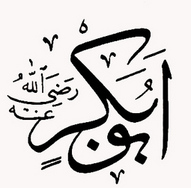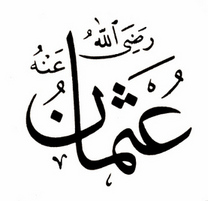One of the goals believers want to reach is entering paradise, because the Quran commands people to race to enter paradise. "Be quick in the race for forgiveness from your Lord, and for a Garden whose width is that (of the whole) of the heavens and of the earth, prepared for the righteous" (Al-i Imran 3/133).
Who has gained Paradise will be apparent in the afterlife, but Allah promised it to the Companions while they were still in this world.
"Not equal among you are those who spent (freely) and fought before the Victory, (with those who did so later). Those are higher in rank than those who spent (freely) and fought afterwards. But to all has God promised a goodly (reward). And God is well acquainted with all that ye do" (Al-Hadid, 57/10).
As is clearly seen in this verse, Allah promises Heaven to all the Companions. Just as the Companions, who had many admirable traits, were given the good news of Paradise in general, there are also those who were promised Heaven individually while here on earth. The term Ashara Mubashara (the ten who were promised Paradise) designates those who were given these glad tidings by the Prophet Muhammad (pbuh) while they were living in this world. In addition to the term "Ashara Mubashara," the phrase with the same meaning - "al-Mubashara bil-Jannah" - was also used.
They are: Abu Bakr (634), Umar (643), Uthman (655), Ali (660), Talha (656), Zubayr (656), Abdurrahman ibn Awf (652), Sa'd (674), Said ibn Zayd (671), Abu Ubaidah (639). The names of these Companions were mentioned in hadith and were, thus, fixed. Generally, when the Companions of the Prophet, particularly the Noble Companions, are evaluated, it will be seen that this situation is very natural in respect to general Islamic principles.
Some common traits of the Ashara Mubashara:
- All became Muslim in the early years of Islam.
- They made great service to the Prophet and the Islamic cause.
- They migrated.
- They participated in the battle of Badr.
- They swore allegiance to the Prophet at Hudaybiya.
- There are many narrations in hadith sources regarding their virtues.
- Sources of sound hadiths with narrations on these Companions.
ABU BAKR AS-SIDDIQ
He is the first free man to his faith after Muhammad (pbuh) began preaching the message of Islam; he is the first of the rightly-guided caliphs and the first of the Ashara Mubashara. His original name was Abdul-Kaaba. After the advent of Islam, the Prophet gave him the name of Abdullah. His patronymic is Abu Bakr. He is known with the sobriquets of Jamiul Quran, as-Siddiq, and al-Atiq. The most famous of these is as-Siddiq.
His birth
Abu Bakr was born two years and several months after the Event of the Elephant in Mecca in 571. He was known for his admirable traits and chastity. It is related that Abu Bakr was one or three years younger than the Prophet.
His features
He was light-skinned with a lean body, a thin face, a sparse beard, deep-set eyes and a prominent forehead.
His family
From the Banu Taym tribe which held an important position in Mecca, was involved in trade, had social connections and broad culture, Abu Bakr's genealogy meets with Muhammad (pbuh) in Murra b. Kab. His mother's name is Ummul-Hayr Selma and his father's name is Abu Quhafah. From the Meccan notables, his father saw Abu Bakr's caliphate and death.
He had several marriages. During the Age of Ignorance he first married a woman named Qutayla bint Abduluzza, and they had a son named Abdullah and a daughter named Asma. Aisha and Abdurrahman were born his wife Umm Ruman; Umm Kulthum was born Habiba, the daughter of Harija ibn Zayd who he married in Medina; and a son named Muhammad was born his wife, Asma.
His pre-Islamic life
Abu Bakr was a person well-liked and known for his admirable virtues during the Age of Ignorance. He had the duty of overseeing the payment of blood money (asnaq) and compensation in Mecca. As a prominent Meccan, he was famous for his knowledge of genealogy and narration. He was involved in the textile and clothing trades; his capital was forty thousand dirham, and he spent most of it for Islam.
Entrance to Islam
Abu Bakr was the first to his faith to the Prophet after Khadija. He worked to gain converts to Islam powerful tribes during the Meccan period. On the other hand, he protected the helpless and slaves who were subject to torture by the idolaters, and he used his wealth to buy and free persecuted slaves.
According to Aisha's narration, Abu Bakr, who had remained at the Prophet's side for thirteen years in Mecca, began to cry joy when he received the command the Prophet to emigrate and learned that they would migrate together.
He was present at the battles of Badr, Uhud and the Ditch. He participated in military expeditions to Muraysi, Qurayza, Haybar, Mecca, Hunayn, and Taif.
His caliphate
Becoming ill in the eleventh year of the Hijra, the Prophet Muhammad (pbuh) died on Monday, the 13th of Rabi'al-awwal (June 8, 632). Abu Bakr was elected at the wish of the Companions, particularly Umar. In his speech in the masjid after he was elected to be "Caliph of the Prophet," Abu Bakr said, "I am not the best among you, but I have become your leader. If I do my duty fairly, help me; if I am mistaken, correct me. As long as I obey Allah and his Messenger, obey me; if I rebel, your obedience is not required."
He opened war on false prophets and those who said, "We pray, but we won't give the poor tax." He suppressed rebellions in Bahrain, Umman, Yemen, and Muhra. He added Hira, Ajnadin and Anbar to the Islamic world by means of war during his reign, Iraq was conquered and important cities in Syria were taken. Abu Bakr died while the Yarmuk War continued.
Abu Bakr enabled all the verses of the Quran to be gathered together by a delegation under the chairmanship of Zayd b. Sabit.
When Abu Bakr became ill with a disease he got in Medina after the migration in the month of Jumada al-thani, 13 H., he wanted Umar to lead the prayer. Consulting the Companions, he said he thought Umar was suitable for the caliphate. He died at sixty-three like the Prophet whom he loved so much. According to his will, he was buried next to the Prophet at shoulder level.
UMAR IBN KHATTAB
The Second Righteous Caliph, he was one of the Companions closest to the Prophet in his struggle for Unity in an attempt to spread Islam and make it reign in this world. Umar's sobriquet was "Faruq," which means the one who distinguishes between right and wrong.
His birth
Umar was born in Mecca thirteen years after the Event of the Elephant. According to narration related by himself, he was born four years after the Great Fijar war.
His family
His father was Khattab b. Nufayl and his genealogy meets with the Prophet in Kab. A member of the Adiw branch of the Quraish tribe, his mother was Hanteme the sister or cousin of Abu Jahl.
His features
Umar was tall with a big frame, light-skinned, a broad forehead, a long mustache and free-falling hair. Being a shepherd to camels in his childhood, Umar was busy with such honorable works among Arabs as learning genealogy and how to use weapons. At the same time Umar was a very good speaker.
His pre-Islamic life
Sources do not give much information regarding Umar's life before he became Muslim. However, it is known that in his childhood he shepherded his father's animals and that later he became involved in trade. Umar accompanied trade caravans going towards Syria. Among the notables of Mecca during the Age of Ignorance, he handled the duty of envoy for the city of Mecca's government. When a war broke out, Umar would be sent as envoy to the other side and, upon his return, action would be taken according to the information and opinion he gave. In addition, he played an effective role in the resolution of conflict among tribes and the decisions he made were binding.
Entrance to Islam
Deciding to kill the Prophet Muhammad (pbuh), Umar girthed his sword and set out to kill him. However, when he learned that his sister and her husband had entered the new religion, he went to them first and, affected by the Quranic verses they read, he accepted Islam in the 6th year of the Prophet's apostleship.
After he became Muslim, Umar was constantly at the side of the Prophet, and he did everything possible to protect him.
Migration
When Muslims were ordered to migrate to Medina, they secretly began to immigrate to Medina Mecca. Umar felt no need to be secretive and he set off for Medina with twenty companions.
Service to Islam
Umar participated in the battles of Badr, Uhud, the Ditch and Haybar and in many small detached military expeditions. He acted as commander in some of these.
Umar played a big role in eliminating the chaos that appeared immediately after the death of the Prophet in the election of Abu Bakr as caliph. He was the biggest assistant to Abu Bakr during his short term as caliph.
Caliphate
When Abu Bakr understood that he was going to die, he thought about appointing Umar as caliph to himself and, revealing this idea, he consulted some of the Companions. When everyone approved of Umar's being caliph, he became the second Islamic caliph.
While making an effort to complete the conquest of Syria, on the one hand, Umar sent armies to the Iranian front to get solid results, on the other hand. The Iranian army had been defeated in the Qadisiya War. Iran bowed to the sovereignty of Islam by means of war in some regions and by means of peace in other regions. Azerbaijan and Armenia all the way to Khorasan were among the conquered Persian lands. Egypt and Jerusalem were also taken during this period.
Umar was also trying to set up state organizations. He established the Council. He made income non-Muslim revenues to be formed into categories. In order to put legal matters in order, he was the first person to appoint judges working independently the governors. In 17 H. he printed money and put it in circulation. He established military headquarter towns in order for armies to be located close to enemy regions.
He was stabbed by a non-Muslim slave and he died three days after this incident.
UTHMAN IBN AFFAN
A monument of modesty, he is the third Rightly-Guided Caliph. His patronymic is Uthman ibn Affan ibn Abil-As ibn Umayya ibn Abdis-shams ibn Abdi Manaf al-Quresi al-Amawi Abu Amr. After he became Muslim, married Ruqayya, the Prophet's daughter, and had a son her named Abdullah, he became known as "Abu Abdullah." His patronymic is "Abu Abdullah." He was also called "Abu Amr" and "Abu Laila." His sobriquet is "Zinnurayn."
His birth
Uthman (ra) was born 6 years after the Event of the Elephant and 47 years before the Migration. According to this, Uthman was 34 years-old when Muhammad (pbuh) was made eminent with apostleship.
His family
A member of Banu Omayya, his genealogy connects with the Prophet in his fifth grandfather Abdi Menaf. His mother is Arwa binti Qurayz b. Rabia b. Habib b. Abdi Shams. His grandmother is the Prophet's aunt Beyda, the daughter of Abdulmuttalib.
He was married with two of the Prophet's daughters. After Ruqayya died in the year 2 H., he married Umm Kulthum. His son Ruqayya, Abdullah, died in 4 H. at the age of six. Later he married women with the names: Fahita b. Gazwan, Umm Amr binti Jundub, Umm Benin binti Uyayna and Naila. From Umm Amr binti Jundub he had children named Amr, Halid, Aban, Umar, and Mariam; with Umm Benin binti Uyayna he had a child named Abdulmelik. The most well-known among these is his son, Aban.
His features
Uthman was handsome, very polite, of average height, with a thick beard and thick hair between his shoulders.
His pre-Islamic life
There is scarce information in sources regarding Uthman's life before he became Muslim. He was busy with trade in his youth. Due to his honesty in trade transactions, he was famous for this among the people.
Entrance to Islam
Uthman ibn Affan became Muslim at the invitation of Abu Bakr's.
Migration
He participated in the two migrations to Abyssinia. When the order was given for migration to Medina, Uthman went together with the other Muslims.
Service to Islam
He bought the Ruma well which was owned by a Jew for twenty thousand dirham and allowed for the free use of it by Muslims.
Due to his wife Ruqayya's serious illness, Uthman did not join the Badr battle with the Prophet's permission. Except for Badr, he fought in all the battles made with the idolaters and the enemies of Islam.
His caliphate
When Umar was wounded, the people he chose elected Uthman as caliph after a public survey.
When Uthman took over the state administration, Islamic conquests were continuing at a fast pace. During this period Muslim armies conquered Juzejan, Taliqan, Faryab and Balh, almost all of the cities in the Toharistan region, the islands of Cyprus and Rhodes, and the Ifriqiyya region. Also in the interior of Anatolia the region was conquered as far as Tiflis.
He died during rebellions that occurred as a result of dissent.
ALI IBN ABU TALIB
Ali was the son of the Prophet's uncle, his son-in-law and the fourth caliph. His father was Abu Talib, his mother was Fatima binti Asad the Quraish, and his grandfather was Abdulmuttalib. His patronymic was Abul Hasan and Abu Turab (father of earth), and his nickname was Haydar. His title was Commander of the Faithful. He is also referred to as "Allah's Lion."
Birth
Ali was born twenty years before the Migration. He was the youngest son of Abu Talib, the Prophet's uncle. His patronymic was Abu Hasan or Abu Turab.
His family
Ali was the son of the Prophet's uncle, Abu Talib.
Ali's mother became Muslim after the death of her husband and migrated to Medina. When she died, the Prophet sent his blessed clothing and commanded that it be used as her winding sheet.
Ali had 14 sons and 9 daughters. Among these Hasan, Husain, Zainab and Umm Kulthum were from the Prophet's daughter, Fatima. While Fatima was alive, Ali did not take a second wife. His other marriages occurred after her death.
His features
Ali was of short-medium height, with dark skin, large black eyes and a thick and broad beard. According to Sawade ibn Hazala's description, he once used henna on his beard, but later left it in its natural state.
Entrance to Islam
The Prophet Muhammad (pbuh) invited members of the Banu Hashim to his house in order to explain Islam to them. After dinner he said, "O sons of Abdulmuttalib, I have been sent to mankind and you in particular. Who among you will pledge allegiance to me as a brother and friend?" Only Ali stood up and gave his allegiance as the Prophet asked.
Migration
Before the Prophet migrated, he left some items that he had taken in trust with Ali to return to their owners. Then that night Ali slept in the Prophet's bed and surprised the unbelievers. After that he migrated to Medina, too.
Service to Islam
After the Migration he was always at the side of the Prophet and participated in all the battles. He was among those who kept vigil in his room while the Prophet was dying. When Abu Bakr was elected caliph, Ali was in the Prophet's room swathing his corpse.
During Umar's reign, Ali handled all the legal matters, serving like the chief justice of the Islamic state. Although he was not very happy with the administrative approach during Uthman's caliphate, he informed Uthman of the complaints coming various regions of the Islamic state and he made recommendations for their resolution. He did what he could to keep at bay those besieging Uthman.
His caliphate
After Uthman's martyrdom, prominent individuals pledged their allegiance to Ali. When he became caliph he was confronted with many problems that needed to be solved. This confusion gave birth to internal conflict like Jamal and Siffin. Great sacrifice and effort were shown to resolve the disputes within the Islamic state.
Eventually, in Kufa in the year 40 H. /661 A.D. Ali was wounded by Abdurrahman ibn Muljam, a Hariji, as he was going to the morning prayer. He became a martyr as a result of this wound.
Because he was constantly at the side of the Prophet, he was advanced in Tafsir, Hadith and Fiqh. In fact, in the Prophet's words he was the "gate to the city of knowledge," the most knowledgeable of the community.
ABDURRAHMAN IBN AWF
He is one of the ten Companions to be given the good tidings of Paradise while the Prophet was alive and one of the first Muslims. His original name was Abdulkaaba or, according to another view, Abdu Amr. He was known by the patronymic of Abu Muhammad.
Abdurrahman was born approximately twenty years after the Event of the Elephant.
His mother was Sifa binti Awf b. Adil-Haris b. Zuhra b. Qilab. He was the son of Haris the Banu Zuhra of the Quraish tribe.
Abdurrahman, who entered Islam during the days of activity in Arkam's house, was given this name by the Prophet.
He joined both migrations to Abyssinia. Eventually, when Muhammad (pbuh) encouraged the Companions to migrate to Medina, he did so with the others.
Abdurrahman b. Awf began trading in the Medina market and Allah gave him great wealth. Known as one of the most generous Companions, Abdurrahman b. Awf made great contributions in Allah's path to many military expeditions, particular the Tabuk expedition.
When he became very old during Uthman's time, Abdurrahman lived a very quiet life and finally died in Medina in the year 32 H.
Abdurrahman b. Awf heard many hadiths the Prophet, but he refrained relating them all because of his scrupulousness. He has up to sixty-five hadiths narrated in hadith collections.
ABU UBAIDAH IBN JARRÂH
Mentioned with the sobriquet "Custodian of the Ummah," he is one of the first Muslims and one of the Ashara Mubashara. His original name was Amir ibn Abdullah ibn al-Jarrah. He is the Banu Fihr of the Quraish tribe. His genealogy connects with the Prophet's genealogy in their forefather Fihr.
He was famous with the sobriquet of "Custodian of the Ummah."
Abu Ubaidah became Muslim by means of Abu Bakr's invitation or by going to the Prophet with his friends under the leadership of Uthman ibn Maz. He was among the second convoy of immigrants to Abyssinia. Like the other great Companions, Abu Ubaidah participated in all the military expeditions. He was always at the Prophet's side in the conquest of Mecca, the siege of Taif, and the Farewell Pilgrimage. During the jihad activities in Umar's time Abu Ubaidah ibn Jarrah participated in the conquests in the Syria region which began during Abu Bakr's caliphate, and he served as a commander.
He fell ill during the plague in Syria, Egypt and Iraq, which is historically called the Amwas Tauna, and passed away.
SA'D IBN ABI WAQQAS
Sa'd ibn Abi Waqqas Malik ibn Wuhayb ibn Abdi Menaf ibn Zuhra. His father was Malik ibn Wuhayb. His patronymic being Abi Waqqas, Sa'd was called Ibn Abi Waqqas due to it. Because the Prophet's mother was the Banu Zuhra, his genealogy meets the Prophet's on his mother's side. Sa'd's mother was Hamene binti Sufyan ibn Umayya.
Sa'd was one of the first to accept the Islamic faith. He remained in Mecca until the migration to Medina.
He participated in the battles of Badr, Uhud, the Ditch, Hudaybiya, Haybar, the conquest of Mecca and all other military expeditions. He performed great service, both military and political, during the caliphate periods.
Sa'd (ra) passed away in the Aqiq valley outside of Medina where he was residing in the year of 55 H.
SA'ID IBN ZAYD
His father was Zayd ibn Amr and his genealogy meets with the Prophet's in Ka'b. His patronymic was Abul-A'var. He was also called Abu Tur.
His mother was Fatima binti Ba'ja. His father Zayd belonged to the Haneef religion of Abraham.
Said was raised according to the Haneef religion which his father Zayd taught him. He was quick to follow the Prophet Muhammad (pbuh).
He was married to Umar's sister, Fatima.
With the exception of Badr, Said ibn Zayd participated in the battles at Uhud, the Ditch and all other battles.
Said spent the last days of his life on his farm in the Aqiq valley outside of Medina and, surpassing the age of seventy, he passed away in 50 or 51 H.
TALHA IBN UBAYDULLAH
Talha ibn Ubaydullah ibn Uthman ibn Amr ibn Sa'd ibn Taym ibn Murra ibn Qatb ibn Lueyy ibn Galib al Qurasi at-Taymi. His patronymic was Abu Muhammad.
Talha was one of the first eight people to accept Islam and one of five people who became Muslim through Abu Bakr.
Talha was of medium height, broad-chested, broad-shouldered and had large feet. He was dark complexioned with thick hair, but his hair was neither short and curly nor long and straight. He had a smiling face with a thin nose. He did not dye his hair. He walked quickly and would turn with his whole body towards the place he was headed.
Although he did not fight at Badr, he joined many other battles. He heroically defended the Prophet at Uhud.
He was killed at the Battle of the Jamal by Marwan ibn Hakam. It is estimated that he was between 60-64 years of age at the time of his death.
Talha was the Prophet Muhammad's (pbuh) brother-in-law. Four of his wives were the sisters of the Prophet's wives.
ZUBAYR IBN AWWAM
Zubayr ibn al-Awwam ibn Khuwaylid ibn Asad ibn Abdil-Uzza ibn Qusayy ibn Qilab ibn Murra ibn Ka'b ibn Lueyy al-Qurasi al Asadi. He was called "Abu Abdullah" in reference to his oldest son, Abdullah. He was the Prophet's friend and disciple and, at the same time, the son of his aunt Safiyyah binti Abdulmuttalib.
After Umar's death, he was one of the 6-member council established to make the election of the caliph. His mother called him "Abu-t-Tahir." However, Zubayr was known by the patronymic of his son Abdullah.
He was either the fourth or fifth Muslim. However, neither his date of birth nor the age at which he became Muslim is known for sure. He migrated to Abyssinia.
Just as he fought in all the battles, he played an important role in the conquest of Egypt.
He fought in the battle of Jamal; however, he later quit the war. On the way back to Medina when he arrived at the headwater belonging to the Tamim tribe, Amr ibn Jarmouz began to follow him. He killed Zubayr at a place called the Siba Valley.
(1).jpg)










